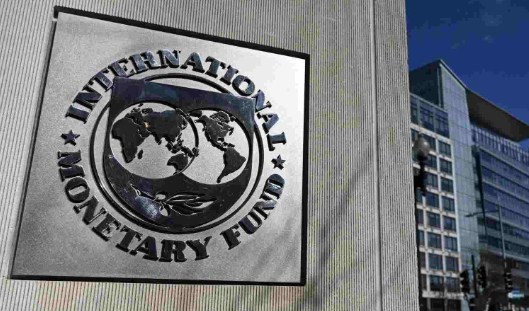
In its latest World Economic Outlook update, released on July 29th, the International Monetary Fund (IMF) raised its 2025 global economic growth forecast to 3% from 2.8% in April, and slightly adjusted its 2026 forecast to 3.1% from 3%. This adjustment marks a significant improvement in the global economic outlook, driven by the recent easing of global trade tensions, particularly the positive adjustments in tariff policies by both China and the United States. While the IMF emphasizes that the risks posed by the trade war have not completely dissipated, the temporary easing of tariff pressure has injected new vitality into the global economy.
Since the IMF significantly downgraded its global growth forecast in April due to US tariffs, the global trade environment has undergone significant changes. In May, the US and China reached a phased agreement to reduce some of the additional tariffs and restart negotiations. This breakthrough directly boosted market confidence. The rush to export by businesses supported economic activity in Europe and Asia in the short term, easing pressure on the global supply chain. The IMF noted that a combination of factors, including an improved financial environment, a depreciating dollar, and continued decline in inflation, have contributed to an upward revision of growth forecasts for emerging market and developing economies to 4.1%, while advanced economies saw a slight increase to 1.5%. China, a key engine of the global economy, saw its growth forecast jump from 4% to 4.8%, the largest increase, reflecting a strong recovery in export momentum.
Despite the overall improvement in expectations, significant regional differences persist. The United States, the primary initiator of tariff policies, remains under pressure on its economic growth forecast. The IMF lowered its 2025 GDP growth forecast to 1.8% from 2.7% in January, and further to 1.7% in 2026. Eurozone growth forecasts remained low at 0.8%, due to weak manufacturing and energy price shocks. Emerging markets such as India and Southeast Asia, benefiting from deepening regional trade cooperation and reconfigured supply chains, have shown strong resilience. Notably, the IMF warned that if the current tariff suspension fails to ease after its expiration in August, global output could face a downside risk of 0.3% in 2026. While tariff easing has eased short-term pressure, the IMF warns that global inflation may decline more slowly than expected. Global inflation is projected to be 4.3% in 2025, with inflation expectations in developed economies rising by 0.1 percentage point from the beginning of the year due to tariff pass-through costs. US import prices have not declined significantly, and some goods have even increased, indicating that the burden of tariffs has been passed on to domestic consumers. Meanwhile, the structure of global trade is undergoing profound adjustments: services trade is growing faster than goods trade, while the trend of "nearshoring" and regionalization within globalization is accelerating. The IMF projects that global trade will fall from 57% of GDP in 2024 to 53% by 2030, highlighting the potential threat of trade fragmentation to long-term growth.
Faced with fluctuating trade uncertainties, the IMF urges countries to adopt a multifaceted strategy to strengthen economic resilience. First, trade policies must be stabilized to prevent tariffs from becoming a regular means of pressure. Second, central bank independence must be guaranteed to address inflation fluctuations, while fiscal policy must be used to restore buffers. Third, structural reforms must be promoted, particularly supporting technological innovation in the manufacturing sector, to offset the employment impact of automation. Furthermore, the IMF emphasized the crucial importance of repairing the global cooperation framework, emphasizing that only through multilateral negotiations to reduce trade barriers can a sustainable economic recovery be achieved.
The global economy currently faces a fragile window of recovery. The rebound in growth expectations brought about by tariff easing reflects both the progress of phased negotiations and the market's urgent need for policy certainty. However, the IMF's warning reminds us that the systemic risks of a trade war have not been eliminated, and the long-term challenges of supply chain restructuring, inflationary pressures, and global transformation remain. Only by replacing confrontation with cooperation and resolving conflicts through reform can the global economy truly emerge from the shadows and embark on a more resilient growth path.

報告顯示,中國電力投資加速增長,預計2024年電網基建投資將超過5300億元。
近日,市場迎來了一則引人注目的消息:工業巨頭3M公司(MMM.N)在本周五公布了其季度業績報告,隨後股價飆升至近兩年來的
最近,外媒給OpenAI算了筆賬,今年可能要血虧50億美元。
近日,巴黎奧運會和世界鐵人三項協會聯合發布了一項重大決定,宣布因塞納河水質污染問題,原定於近期進行的奧運會鐵人三項首次下
當地時間7月18日,法國巴黎發生了一起令人震驚的持刀襲警事件。
近期,一則重大消息在國際舞臺上引起軒然大波,馬來西亞宣布加入金磚國家。
調查發現,互聯網和智能手機的使用幹擾了韓國近五分之一學生的生活。